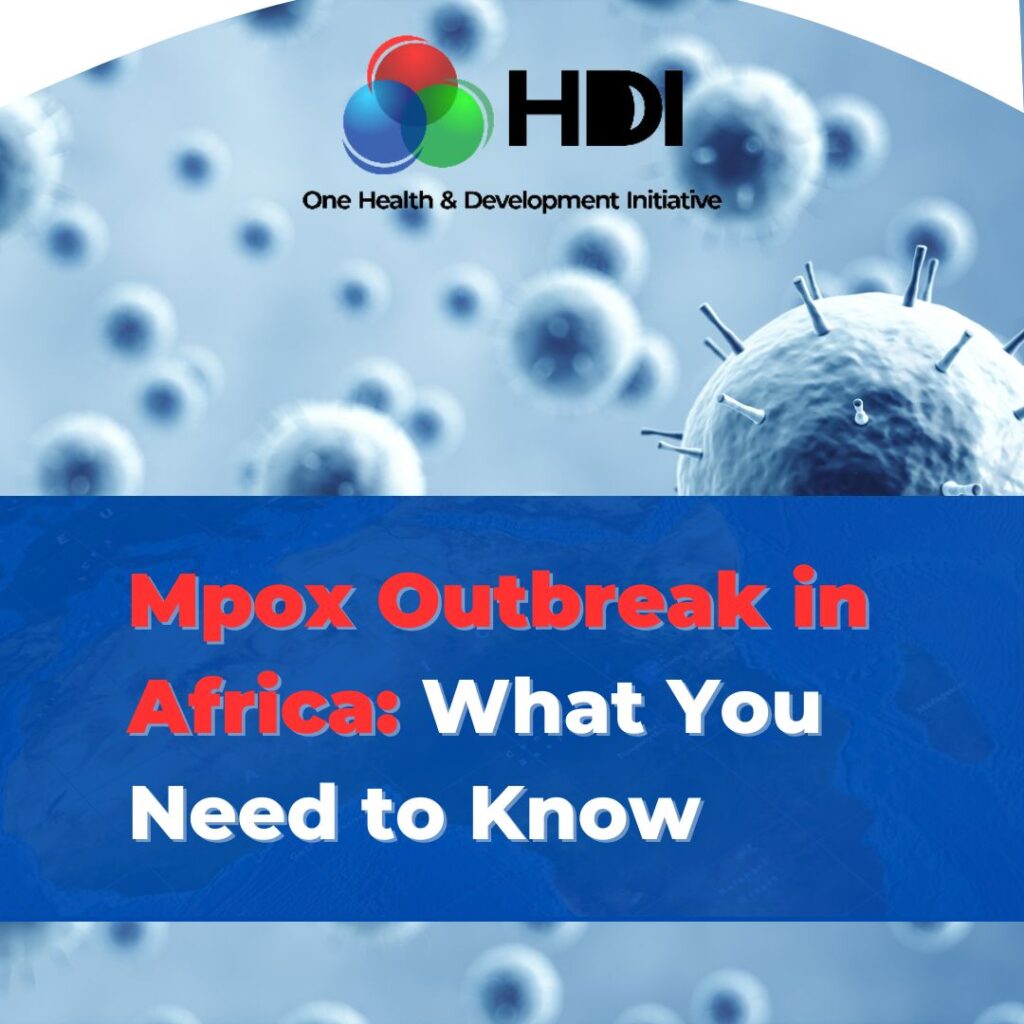
Africa is experiencing a significant surge in mpox cases, prompting serious concerns across the continent. In response, the Africa Centres for Disease Control and Prevention (Africa CDC) declared the outbreak a Public Health Emergency of Continental Security (PHECS), making it the first of such a declaration since its inception in 2017. Reflecting the gravity of the situation, the World Health Organization (WHO) has also classified the outbreak as a Public Health Emergency of International Concern (PHEIC), the highest level of global health alert. This marks the second time mpox has prompted such a declaration, underscoring the urgency of a coordinated international response. Mpox has been a persistent public health challenge in the Democratic Republic of Congo (DRC) for over a decade, with a steady increase in reported cases. However, the situation took a drastic turn in 2023, with a sharp rise in infections. Unfortunately, the total number of cases reported in 2024 has already surpassed those of the previous year. The WHO Director-General, Dr. Tedros Adhanom Ghebreyesus, expressed deep concern, noting that “the detection and rapid spread of a new clade of mpox in Eastern DRC, its detection in neighbouring countries that had not previously reported mpox, and the potential for further spread within Africa and beyond are very worrying.” Countries such as Burundi, Kenya, Rwanda, and Uganda have all recorded their first-ever mpox cases, signalling a growing threat. Mpox, formerly known as monkeypox, was first identified in humans in the DRC in 1970 and is caused by the monkeypox virus. This viral infection can be transmitted from person to person, and in rare cases, from the environment to humans via contaminated objects and surfaces. Transmission can also occur through contact with infected animals, including the consumption of bushmeat. This diverse and interconnected nature of its transmission highlights the need for an integrated One Health approach to curb the spread.The virus is classified into two clades: Clade I and Clade II. Clade I, found primarily in Central Africa, is associated with more severe illness and higher mortality rates. Clade II, responsible for the 2022 outbreak, is prevalent in West Africa. The recent surge in cases is attributed to a new, more virulent strain known as Clade Ib, initially detected among sex workers. This mutated strain underscores the evolving nature of pathogens and their potential to become more dangerous. Children are particularly vulnerable, accounting for two-thirds of the reported cases in the DRC. Common symptoms of mpox include fever, rash, and swollen lymph nodes. Currently, there is no approved specific treatment for the mpox virus. While some antiviral medications used for smallpox may be administered in some instances, mpox is generally a mild and self-limiting disease, particularly in individuals with strong immune systems. Management typically involves supportive care. Vaccines play a crucial role in prevention. The Africa CDC has announced plans to distribute 200,000 vaccine doses across the region. However, this is far short of the 10 million doses the agency estimates are needed to control the outbreak. In the face of the ongoing outbreak, individual actions are crucial in preventing the spread of the virus. Practising good hygiene is a vital step. Frequent handwashing with soap and water is essential, especially after touching potentially contaminated objects or surfaces. An alcohol-based hand sanitiser is an effective alternative when soap and water are unavailable.Also, it is equally important to avoid close contact with individuals showing symptoms of mpox, such as rashes or lesions. Since the virus can also spread from animals to humans, it is advised to avoid wild animals and pets that may have been exposed to the virus. Additionally, safe handling of food is essential. Ensuring that all food, especially meat, is thoroughly cooked before consumption is another critical preventive measure. Likewise, avoiding the consumption of bushmeat can significantly reduce the risk of transmission. The One Health approach is vital in addressing the mpox outbreak in Africa and beyond. This collaborative strategy enables us to identify potential animal reservoirs of the virus, understand various transmission pathways, and develop effective prevention measures. Given the virus’s history, we must deepen our understanding of the factors that trigger mpox outbreaks to prevent future occurrences using the One Health approach. Similarly, coordinated response across human, animal, and environmental health sectors is essential for successful disease control and optimal resource utilisation, particularly in resource-constrained regions like Africa.Public health emergencies like this highlight the importance of robust disease surveillance systems. An effective surveillance system facilitates early detection of outbreaks, allowing for swift and decisive action to prevent or mitigate their impact.The Situation
What is Mpox?
What is being done
What you can do as an individual
Infection Prevention and Control through the One Health Approach





